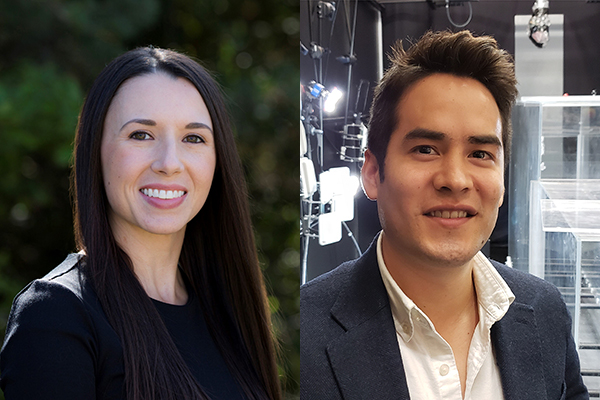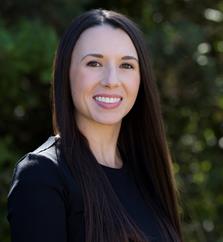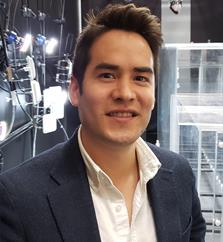Biomedical engineering to add two new faculty
Alexandra Rutz and Ismael Seáñez will join the BME faculty next spring as assistant professors

Alexandra L. Rutz and Ismael Seáñez are set to join the faculty of the Department of Biomedical Engineering at McKelvey School of Engineering in the 2020-21 academic year, bringing the department's total number of faculty to 24.
"We couldn't be more pleased that with the hire of Professors Rutz and Seáñez, we brought not one, but two talented investigators who broaden our research strengths in neuroengineering and enhance our partnerships with neurosurgery," said Lori Setton, the Lucy & Stanley Lopata Distinguished Professor of Biomedical Engineering and chair of the department.
Alexandra L. Rutz, assistant professor
- PhD, MS, biomedical engineering, Northwestern University
- BS, chemistry and molecular and cellular biology, University of Illinois Urbana-Champaign

Alexandra L. Rutz joins McKelvey Engineering from the University of Cambridge, where she is the Marie Skłodowska-Curie Individual Research Fellow in the bioelectronics lab of George Malliaras, the Prince Philip Professor of Technology.
Rutz's research focuses on improving the biocompatibility and long-term function of implantable bioelectronics, especially neural probes. Her doctoral thesis focused on engineering hydrogel bioinks for 3D printing tissues and organs. Her training has been supported by grants from the Whitaker International Scholars Program, the National Science Foundation's Graduate Research Fellowship Program and the Marie Skłodowska-Curie Fellowship program.
Ismael Seáñez, assistant professor
- PhD, MS, biomedical engineering, Northwestern University
- BS, mechanical engineering, University of Texas, San Antonio

Ismael "Mayo" Seáñez joins McKelvey Engineering from the Swiss Federal Institute of Technology Lausanne (EFPL), where he is a postdoctoral fellow working with Grégoire Courtine as head of the translational division at the NeuroRestore Defitech Center for Interventional Neurotherapies. In his work, Seáñez focuses on developing brain-spine interfaces where real-time brain recordings are used to reinforce leg movements with spinal cord stimulation. His training has been supported by grants from the Whitaker International Scholars Program, the National Science Foundation's Graduate Research Fellowship Program, the National Institutes of Health's Ruth L. Kirschstein National Research Service Award and the NIH MARC program.
Rutz and Seáñez will join the department in Spring 2021.



